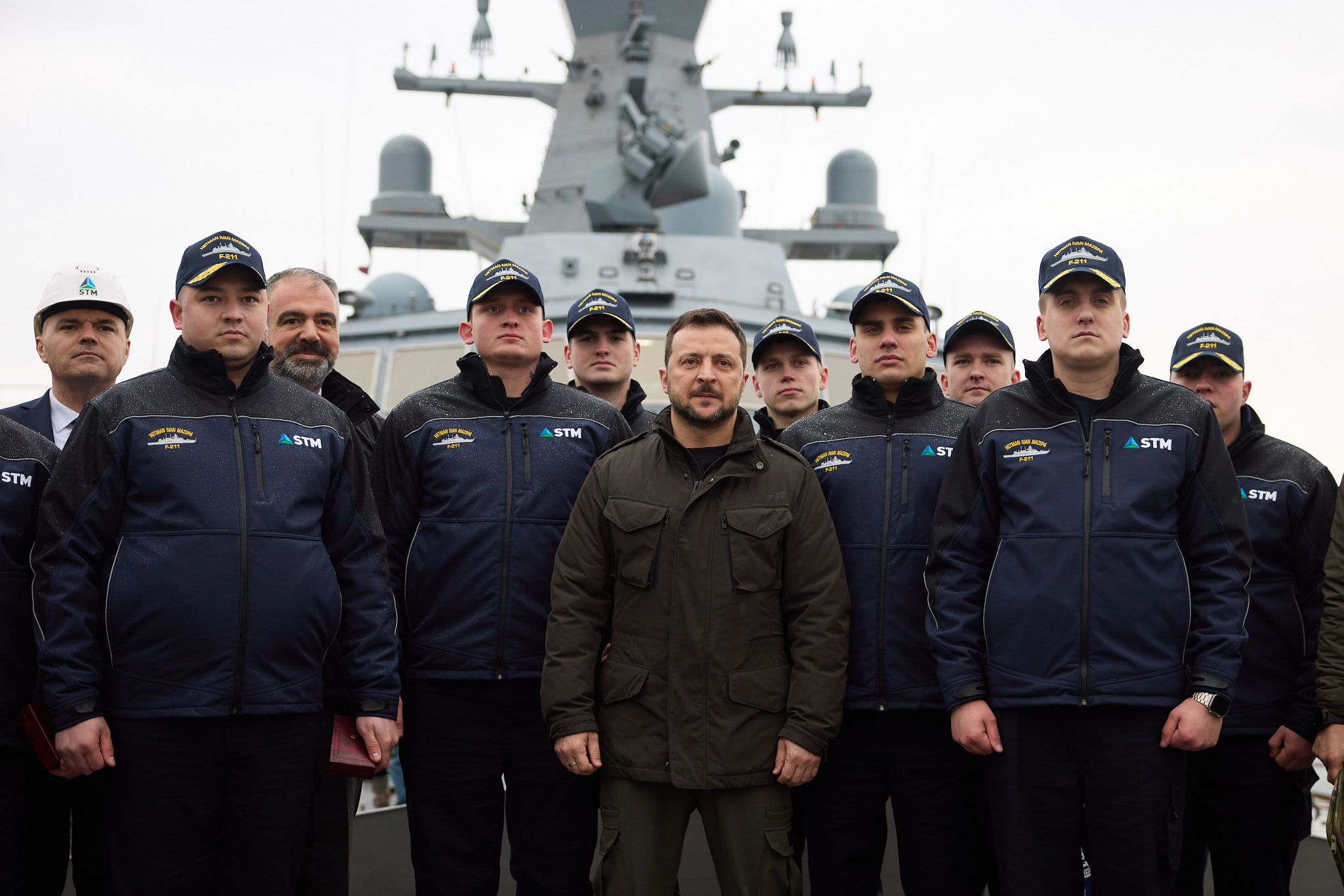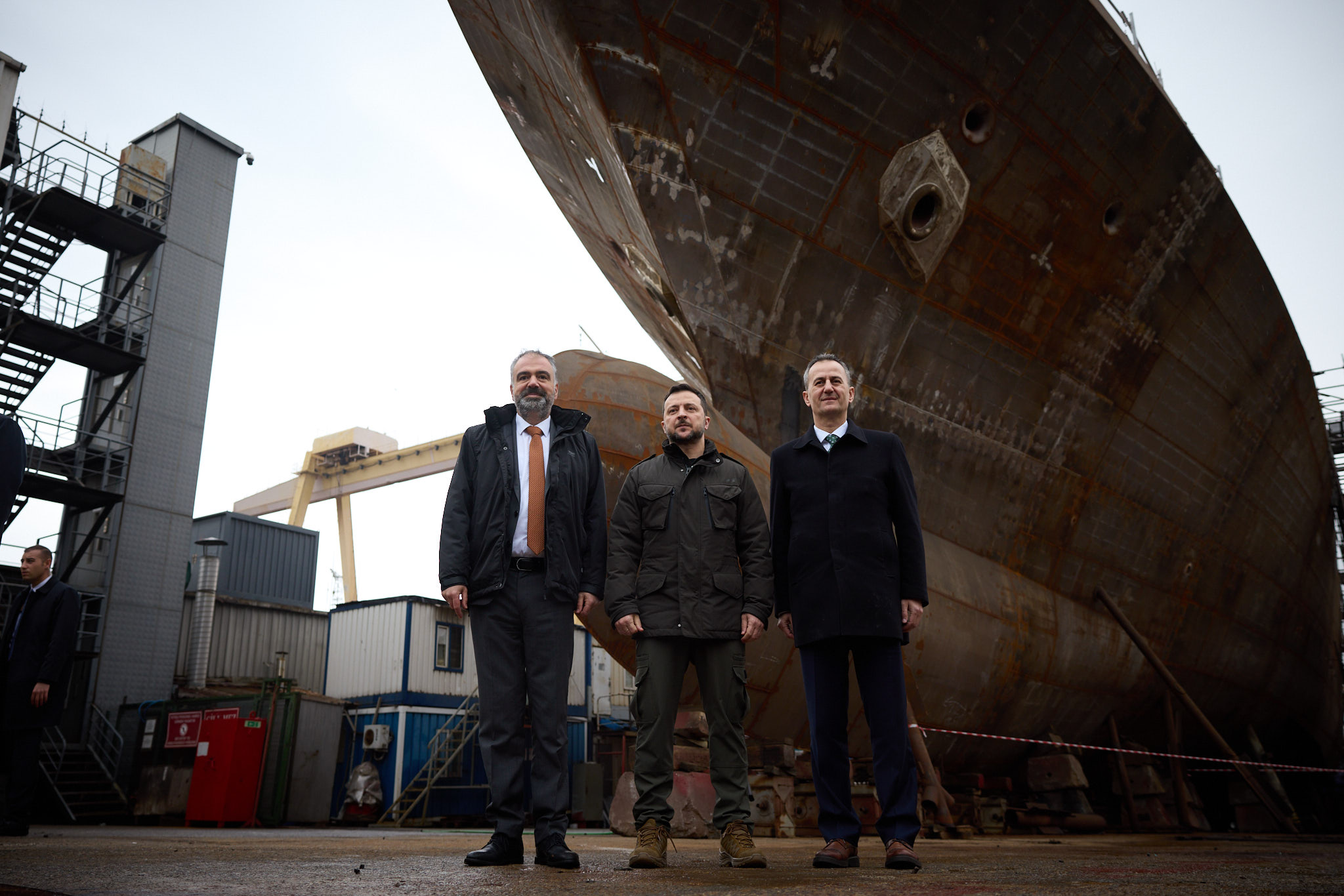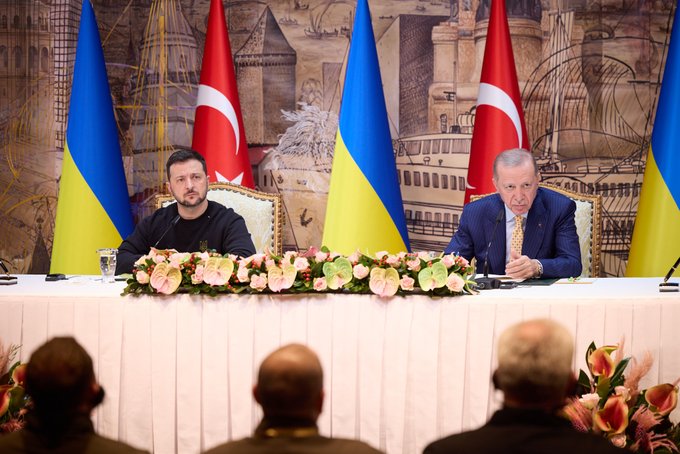Levent Kenez/Stockholm
Turkish officials have recently shown a fondness for posing alongside defense industry products during the visits of foreign heads of state or ministers. These photo opportunities, widely covered in the pro-government media, are also used as a propaganda tool directed at the public and aimed at showcasing how much progress the administration of President Recep Tayyip Erdogan has made in the defense industry.
However, during the visit of Ukrainian President Volodymyr Zelensky to Istanbul on March 8, this trend wasn’t in evidence, with an event of significant importance carefully shielded from the Turkish media, only surfacing through Zelensky’s personal X account and foreign news sources. Reports indicate that Zelensky visited the Tuzla Shipyard to inspect the first of the Ada-class corvettes, whose construction for Ukraine began in 2021, prior to Russia’s war on the country. The corvette is nearing completion, with Ukrainian crew members already stationed in the shipyard. Named after Ivan Mazepa, a figure from the 18th century who initially fought for Peter the Great before defecting and becoming a hero in Ukraine and thus perceived as a traitor by the Russians.

The second vessel honors Ivan Vyhovsky, another Ukrainian military leader who clashed with the Russians in the 17th century. The Ivan Vyhovsky is planned to be delivered to the Ukrainian Navy in 2024-2025.
Head of the Turkish Presidency of the Defense Industry Haluk Görgün, despite accompanying Zelensky, interestingly did not share this on his social media accounts, unlike other guests. Turkish officials are obviously not eager to showcase ongoing Ukrainian projects at the shipyard for fear of angering Russia.
After visiting the shipyard, Zelensky went to Dolmabahçe Palace to meet with President Erdogan, who stated, “We are ready to host a peace summit involving Russia,” regarding the conflict in Ukraine. He also reiterated his readiness to provide support for reaching a new agreement concerning the Black Sea grain corridor. The meeting underscored Turkey’s willingness to facilitate dialogue and cooperation in resolving regional issues.
However, reviving the grain corridor seems like it will not be as easy as initially anticipated. According to a Turkish diplomatic source who spoke to the Reuters news agency on condition of anonymity, developments regarding a new agreement to ensure the security of commercial ships are among the issues to be resolved following the expiration of the grain corridor agreement.
In 2022 Turkey brought Russian and Ukrainian delegations together for the first time since the start of the war and hosted the signing of a vital grain export deal.
Russia announced its withdrawal from the grain corridor agreement last July, citing continued barriers to the sale of its food products. Engaged in negotiations with Turkey and the United Nations, Russia noted the lack of progress on any of the key conditions it put forward.
However, a proposal emerged to address the plight of the least developed African countries, suggesting that Russia would send 1 million tons of grain to Turkey for processing into flour and then transport it free of charge to at least six African countries.
Qatar was mentioned as a financial supporter of the plan, in which Turkish companies were expected to actively participate. Qatar, however, did not take a clear stance on the matter.
As part of the plan, Russia announced the start of shipping 200,000 tons of grain via the Black Sea in November 2023.

Meanwhile, Ukraine began using a “humanitarian aid corridor” following the land and sea routes of Romania and Bulgaria for grain shipments. The Kyiv administration announced that it had transported 3.2 million tons of grain via this route in November 2023.
In the meantime, Turkey’s military drone sales to Ukraine continue through the Baykar company, which is owned by the family of Erdogan’s son-in-law, Selçuk Bayraktar.
Baykar has been selling military drones to Ukraine since 2019. The drone trade, which started with six TB2 Bayraktar UAVs, continued with the delivery of an additional five to the Ukrainian Navy last year. Military experts claim that Turkey has sold more UAVs to Ukraine than announced.
Under a 2022 agreement signed during an official visit by Erdogan to Kyiv, Ukraine will allocate land for a Bayraktar TB2 UAV production facility for 49 years and provide a number of incentives. Parts and materials used in the production of the UAVs will be exempted from customs duties. All financial and personnel information regarding the new facility would be kept confidential.
For Baykar, which currently uses engines from Ukrainian companies Ivchenko-Progress and Motor Sich in the military drones they produce, the production facility in Ukraine would also provide convenience in terms of logistics and time.
How the agreement will be implemented during the war is still unclear at the moment.
President Erdogan sees Baykar as his primary focus and markets its products in many countries, especially in Africa. It is no secret that Erdogan, his family members and his business associates benefit immensely from the defense industry and military equipment sales. Baykar takes advantage of all state facilities but also earns high profits in the local and international market with the sale of weapons, for which the only decision-maker is Erdogan. An important reason for choosing Turkish drones is that Turkey does not have a long export approval process unlike the US and the European Union.












